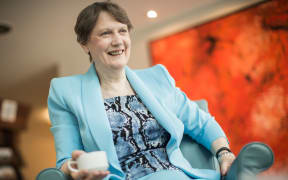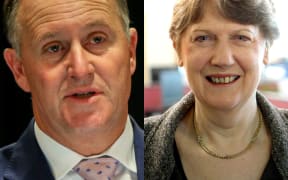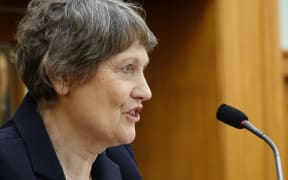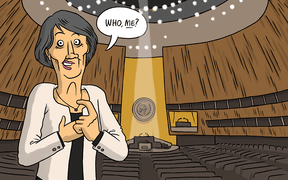Former New Zealand Prime Minister Helen Clark is quite well placed to become the ninth Secretary General of the United Nations, experts say.
Ms Clark currently heads the UN Development Programme and is one of eight people seeking to replace South Korea's Ban Ki-moon when his second term finishes at the end of this year.
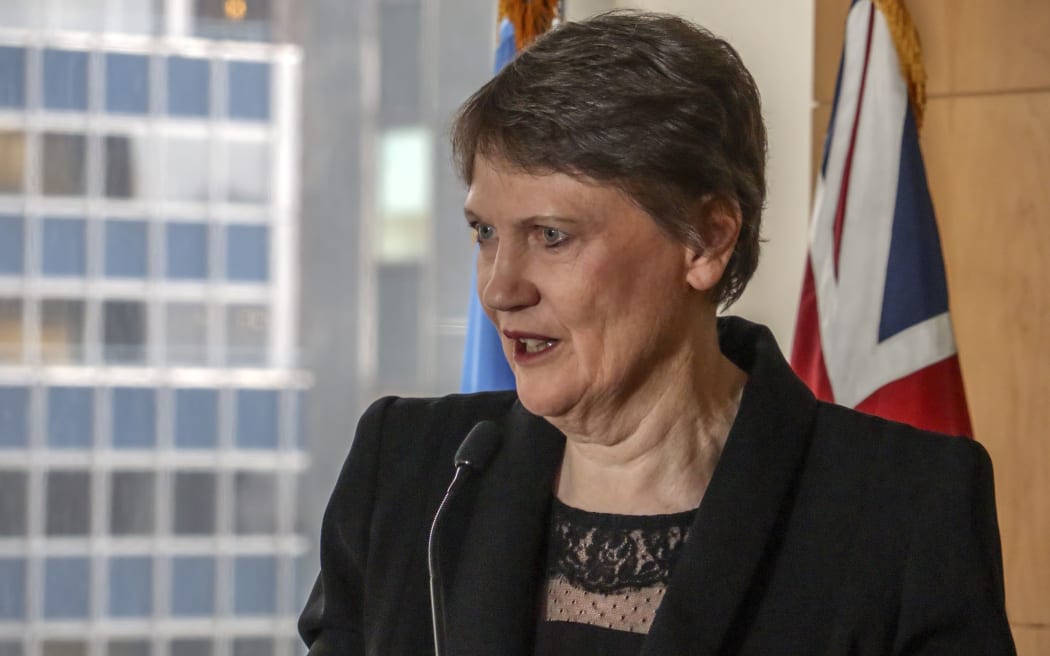
Helen Clark announcing her candidacy at the United Nations, New York. Photo: AFP
Waikato University professor of law Alexander Gillespie said Ms Clark's chances of winning the contest were good.
"On paper, she is the foremost contender," he said.
"She has been running the United Nations Development Programme, and she has an excellent record at the United Nations.
"She ticks all the boxes and she is well known for her work ethic and her accomplishments."
Of the eight secretary generals so far, three were European, two were African, two were Asian and one was from Latin America. No woman has so far held the role.
Otago University International Relations professor Robert Patman said Ms Clark might benefit from her gender.
"She is in quite a competitive field of eight people, four of whom are women," he said.
"But I don't think that is the crucial reason.
"I simply think Helen Clark is the most experienced candidate available."
Ms Clark herself discussed this matter with BBC.
"I am not campaigning as a woman candidate, I am campaigning as the best person for the job," she told BBC.
"But obviously I am a woman and as someone who has been a long time advocate of women's empowerment and gender equality I like to see women get to the top of whatever field of life (they choose)."
No secretary general so far has come from the old Anglo Saxon club, which persists today with arrangements like the Five Eyes Agreement, between Britain, the US, Canada, Australia and New Zealand.
This could prejudice Ms Clark's chances.
Professor Gillespie said another problem was the Secretary General post traditionally rotated geographically and eastern Europe had never had a chance at the top job.
"The problem is that the Russian relationship with the eastern bloc is very tense and there is a good chance the Russians could veto anyone coming out of that area."
The big power right of veto could help New Zealand, he said.
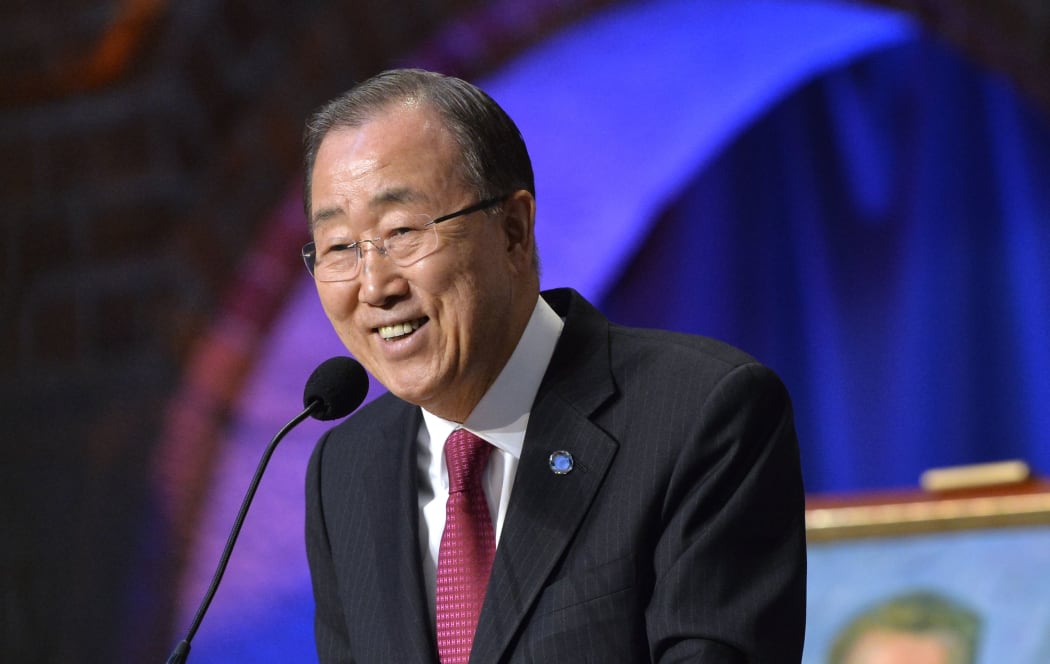
UN Secretary-General Ban Ki-moon Photo: AFP
But experts said the big power veto could hinder New Zealand if the Americans had long memories over the Australia, New Zealand, United States Security (ANZUS) row about nuclear ships.
Whoever gets the job will find it hard work, judging by history.
The body's first Secretary General Trygvie Lie found it impossible to halt the Cold War.
The third, U Thant, could do nothing about the Vietnam war.
Professor Patman said there had long been problems with UN ineffectiveness, because it was only as strong as its member states wanted it to be.
"There is a sense that although the UN has been something of a bystander and has been unable to tackle some of the major problems, there has been a lack of political will to give the UN the clout it needs to become more effective," he said.
"And that is one of the challenges that Helen Clark or any new Secretary General faces in an interdependent world."
Ms Clark has already started campaigning for the job, and will address the General Assembly next week.
